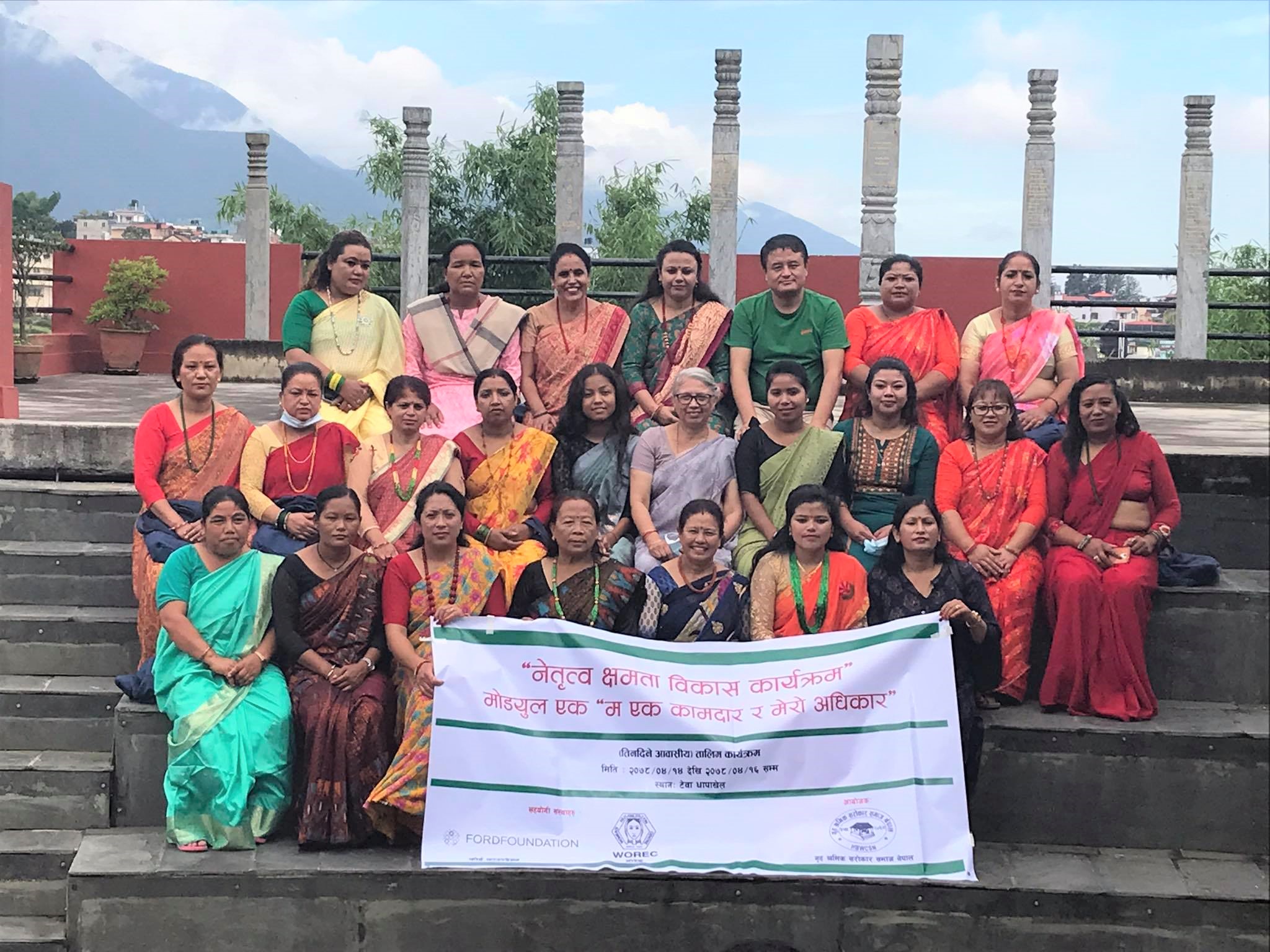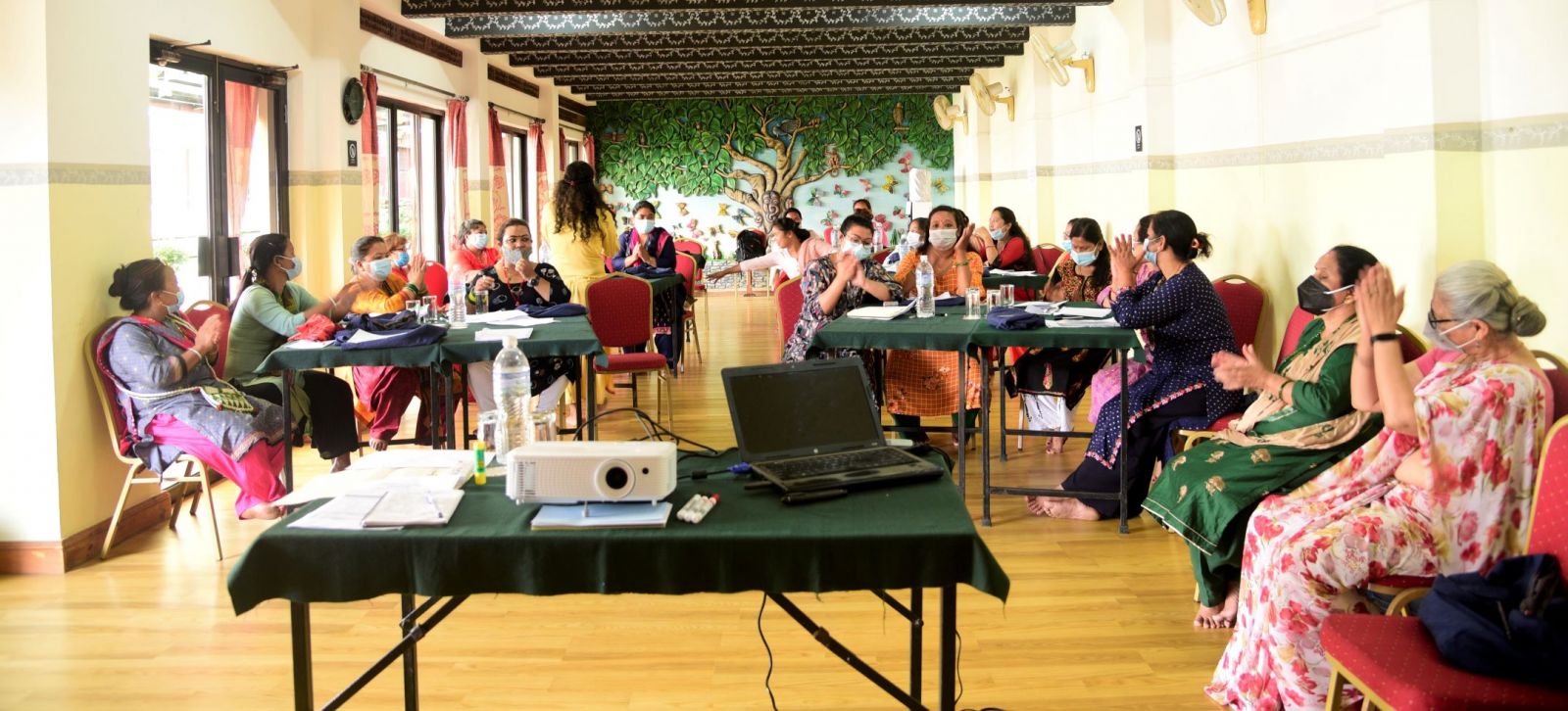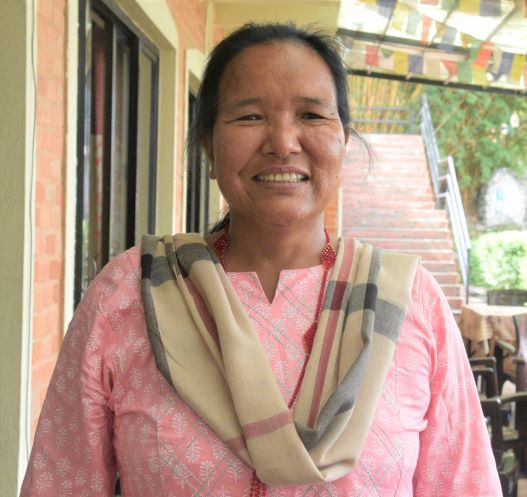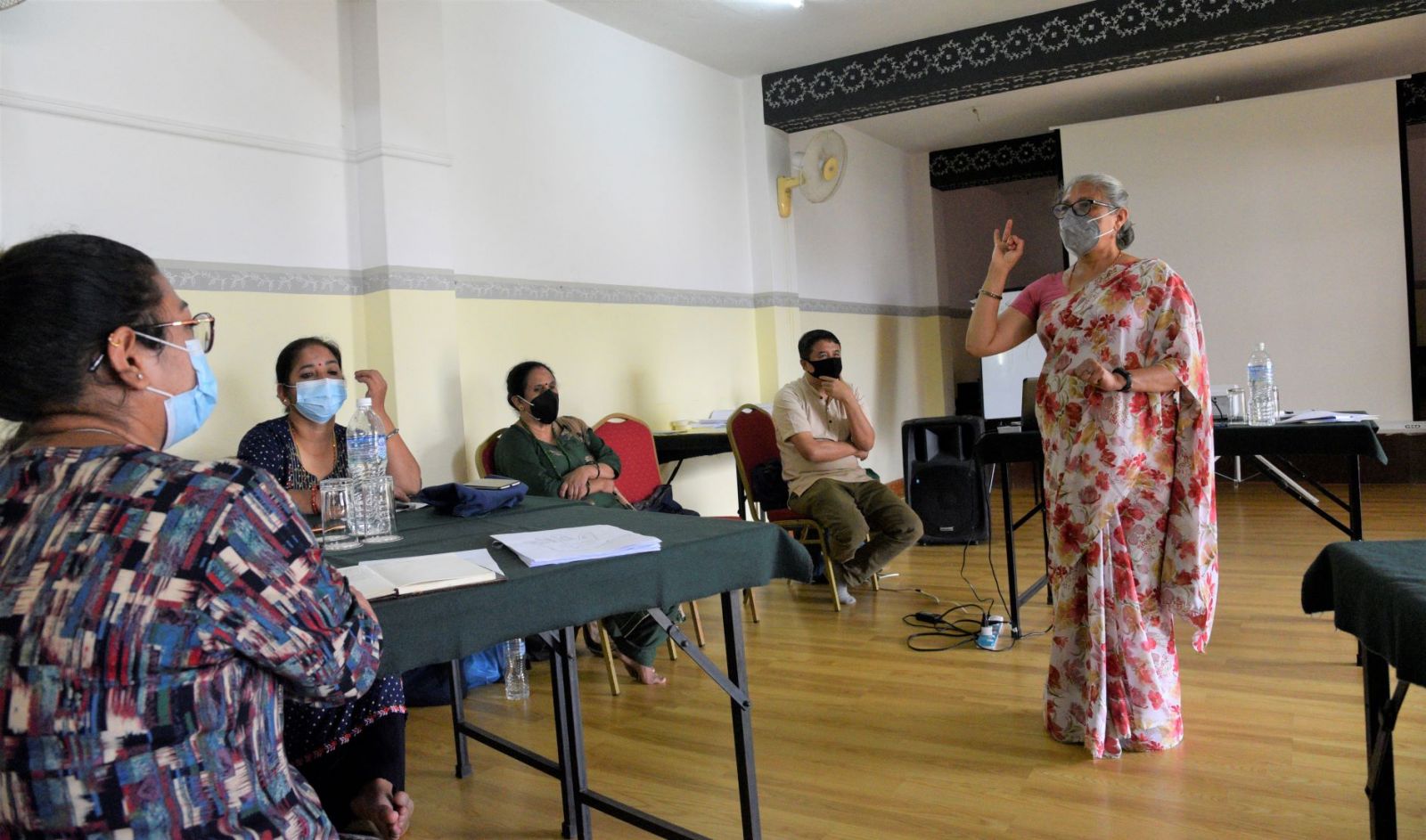
Shanta Laxmi Sayenju has been working for the past forty years. Her workplace is her home at Kavre Panauti Ward- 7, where she knits woolen garments along with 40 other women from her neighborhood.
“There is an open space outside my house where we sit together and knit woolen sweaters, gloves, and caps,” said sixty-year-old Shanta.
Shanta Laxmi works with contractors who supply raw materials such as spools of wool and thread to make woolen garments. Once the work is completed, she has to submit the finished product to the contractors, and in return, she is paid per piece of clothing she makes. She said she earns a few thousand rupees a month.

Caption: Shanta Laxmi Sayenju has been involved in the knitting business for the past forty years but the government has yet to recognize their contribution to the socio-economic development of the country.
But Shanta Laxmi said that there are many challenges that she faces by working from home.
“Knitting is time-consuming and challenging work. It takes a week to complete one sweater. It is a meticulous task that takes a toll on our eyes and fingers, but we have constantly struggled to receive a minimum wage for our work. Apart from that, we don’t have job security, and we are deprived of a written contract, bonuses, paid leave, or pensions,” said Shanta Laxmi.
Shanta Laxmi is one of the thousands of home-based Nepali workers, most of them women, who contribute to the national economy, but the government has yet to recognize their contribution. As a result, there is no guarantee of social and employment security and protection for home-based workers in Nepal.
“I want a new generation to continue to this profession, but for that to happen, first, we should continue to advocate and fight for our right to be treated as decent workers,” said Shanta Laxmi.
Shanta Laxmi wants the new generation to continue to this profession, but for this to happen, she said that the government needs first to recognize the informal sector home-based workers’ contribution to the socio-economic development of the country.
“Our wage is low, and we don’t have a contract, bonuses, paid leave, or pensions. The government should come up with favorable rules and regulations in order to improve the working condition of home-based workers,” said Shanta Laxmi.
To address the challenges faced by home-based workers and enhance their leadership qualities, Home-Based Workers Concern Society Nepal (HBWCSN), in partnership with WOREC and Ford Foundation, organized a first module training of leadership development program for women home-based workers from July 28 to July 30, 2021.
Caption: Home-Based Workers Concern Society Nepal (HBWCSN), in partnership with WOREC and Ford Foundation, organized a first module training of leadership development program for women home-based workers from July 28 to July 30, 2021.
The three-day residential leadership development training program took place at Tewa, Dhapakhel, Lalitpur, and the training sessions were facilitated by the experts from the Ministry of Labour, Employment and Social Security, ILO Nepal, Social Security Fund Nepal, Homenet South Asia.
The training, themed “I AM A WORKER AND I HAVE RIGHTS,” saw the participation of 20 women home-based workers affiliated to HBWCSN’s sister organizations and cooperatives, who are involved in skills such as weaving, knitting, tailoring clothes, bangle-making, shoe stitching, embroidery, and other traditional handicrafts.

Shanta Laxmi, who is affiliated with Griha Shramik Brammayani Mahila Samuha, a sister organization of HBWCSN, was also one of the participants of the training program.
Prabha Pokharel, chairperson of Home-Based Workers Concern Society Nepal (HBWCSN), said that the training program sought to empower women home-based workers to realize their legal rights. Pokharel also stated that the program aimed to develop the leadership capacity of home-based workers to advocate with the government stakeholders to fulfill their rights.
.jpg)
Caption: Prabha Pokharel, chairperson of Home-Based Workers Concern Society Nepal (HBWCSN), says the leadership training program aimed to develop the leadership capacity of home-based workers to advocate with the government stakeholders to fulfill their rights.
“Home-based works provide a means of livelihood for many workers, but home-based workers are the least protected workers. Many home-based workers are even unaware of their rights. Therefore, the facilitators of this training program directly worked with the participants to make them aware of their social and political rights through leadership development,” said Pokharel.

Caption: Many Nepali home-based workers are involved in skills such as weaving, knitting, tailoring clothes, bangle-making, shoe stitching, embroidery, and other traditional handicrafts. Participants displayed their works at the training program.
Shri Maya Tamang, a participant at the training, has been involved in the Buddhist handicraft business for the past ten years. She said that initially, she was surprised to know that she was also a worker like any other sector worker.

Caption: Shri Maya Tamang, a participant at the training, said she is looking forward to sharing the knowledge that she gained in this training with other home-based workers.
“When I started working as a home-based worker, I didn’t know that I was also called a worker just like any other workers from other sectors and that I was also entitled to labor rights. This made me realized that we should be aware of our rights in order to claim it. I hope to pass the knowledge that I gained in this training to other home-based workers like me,” said Shri Maya.
Jyoti Shakya, a program coordinator at HBWCSN, also stated that the leadership skills that the participants have gained from the training would be vital to mentoring the second-generation leaders.
Shanta Laxmi also feels that the leadership skills acquired through training will help bridge the gap between leaders and young women who aspire to be like them.
 Caption: Prabha Pokharel, chairperson of Home-Based Workers Concern Society Nepal (HBWCSN) facilitating the training session to the women home-based workers.
Caption: Prabha Pokharel, chairperson of Home-Based Workers Concern Society Nepal (HBWCSN) facilitating the training session to the women home-based workers.
“The knowledge that I learned in this training program will help me get the second generation of leaders ready to carry on the legacy of knitting culture,” said Shanta Laxmi.